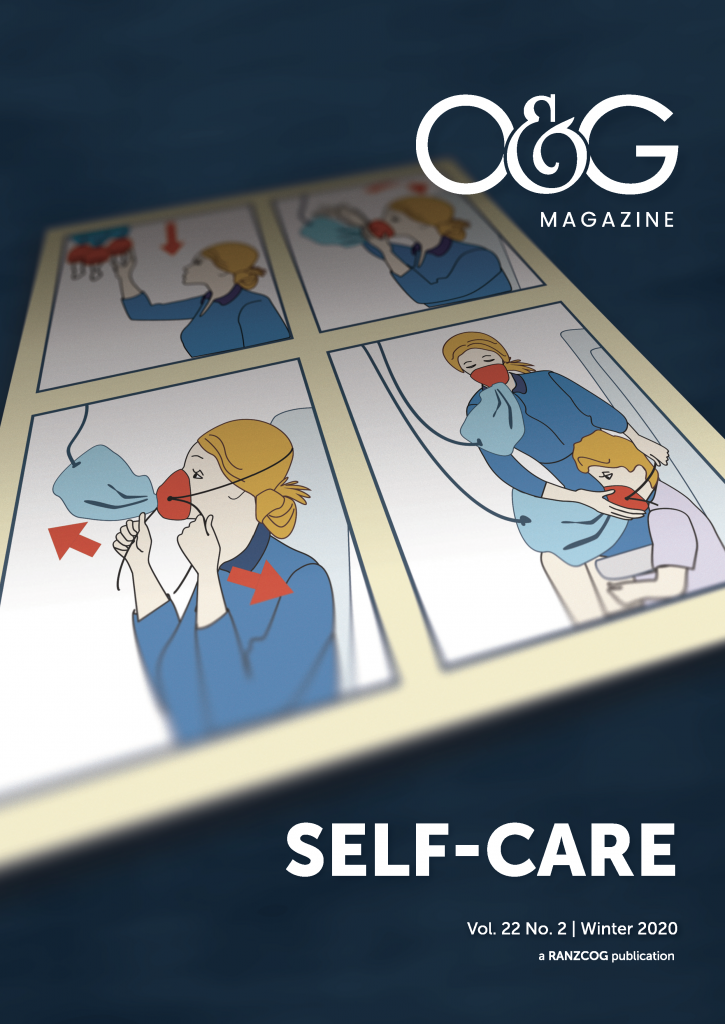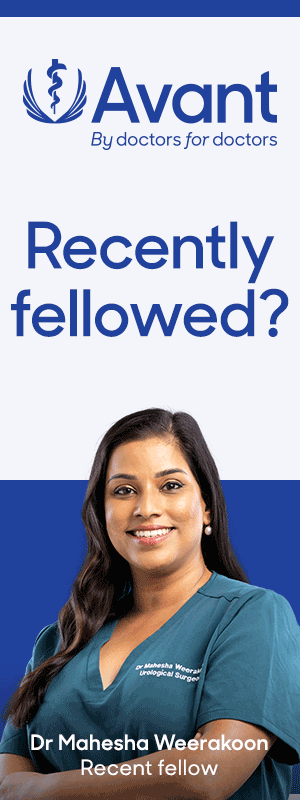The redoubtable Henry Marsh, a recently retired neurosurgeon, describes in his candid, compassionate book the difficulty in approaching a patient harmed by one’s care:
…it feels as though there is a force-field pushing against you, resisting your attempts to open the door behind which the patient is lying, the handle of which feels as though it were made of lead, pushing you away from the patient’s bed, resisting your attempts to raise a hesitant smile. It is hard to know what role to play. The surgeon is now a villain and perpetrator, or at best incompetent, no longer heroic and all powerful. It is much easier to hurry past the patient without saying anything.1
Henry Marsh did open the door for the first of several important conversations. His patient had developed paralysis in one arm after intricate brain surgery. The paradox is that when empathic connection with our patients is most important, with their worries as to what this means for their future life and plans, it is also a time of vulnerability for us; the involved clinician. What we value most is our reputation; will this adverse event damage my career? Did I make a mistake or is this a complication despite my competent care? Will my colleagues support me if there is an investigation? The communication skills we need to ‘be there’ for our patients will be lacking if our own frayed emotions are not controlled. From my medico-legal experience, most of us need help and support at these times. Literature describes powerful feelings of guilt, incompetence or inadequacy following an adverse event.2 Our suffering has even led to the concept of the ‘second victim’.3 Too often there is nobody to provide support. The end result can be a clinician in emotional pain, suffering in silence, with patients at increased risk as a result of such distraction.
Yet most organisations surely have untapped supportive resources. University of Missouri Health Care became convinced clinicians were experiencing high degrees of suffering following an adverse event. They showed one in seven reported a patient safety event within a year that caused anxiety, depression or concerns about ability.4 Often the clinicians felt they had failed the patient. Alarmingly, 68% reported they received no institutional support. Interviews showed most had a meticulous memory of the event, even details of the date and the colour of their scrubs. Half described the event as life altering. The effects were more severe if the patient was of similar characteristics to one of their own family members, was a paediatric patient or there was a longstanding professional relationship.
Though there was individuality in coping skills, six predictable recovery phases occurred:
- Chaos and accident response
- Intrusive reflections
- Restoring personal integrity
- Enduring the inquisition
- Obtaining emotional first aid
- Moving on
I believe part of the recovery for adverse event-associated clinicians is to be collaboratively involved in the learning that results from investigation. It reduces the potential of feeling polarised from our service. However, we need more, yet may feel stigmatised by requiring assistance. UMHC’s support team are embedded on every shift in high-risk clinical areas so no clinician goes home after an adverse event to suffer alone.5 Such debriefing is perhaps the gold standard.
Recognising the importance of such assistance, the National Advocacy Unit, Quality & Patient Safety Directorate in Ireland developed the ASSIST ME model6 consisting of:
A: Acknowledge with empathy the event and the impact on the member of staff.
Assess the impact and their ability to continue normal duties. Example: ‘I came to see you as soon as I heard… This must be very difficult for you.’
S: Sorry. Express regret for their experience: ‘I’m so sorry this has happened – despite our best efforts, things can go wrong.’
S: Story. Allow space for them to recount what happened, using active listening skills: ‘Would you find it helpful to talk about what happened?’
I: Inquire. ‘Is there anything I can help you with at this time?’ ‘Would it help if I told you what happens next in relation to the processes involved?’
S: Supports and Solutions. Provide information on the supports available. Formal debriefing within 48 hours: occupational health department/employee assistance program/mental health services/psychology services such as counselling, crisis intervention.
Provide informal emotional support ‘My door is open for you. I’ll check in with you regularly… In the meantime, if you wish to talk, give me a call.’
Practical support may involve time out from their clinical duties, or different duties, though many staff find it more helpful to remain at work.
T: Travel. Meaning, travelling with the individual needing support. Providing continuing support and reassurance going forward and throughout the review process: ‘I’m here to support you, every step of the way.’
M: Maintain contact. Monitor progress. Moving forward. Ensure there is continued contact with the staff member to prevent feelings of isolation.
E: Evaluate. Establish when the staff member has reached a stage of closure from the event as it is important at this stage not to keep re-opening it. Leave your door open if they require further assistance later. Consider feedback and establish any learning that may benefit other staff.
It is obvious that much of the above involves assistance from others.
I am encouraged that more is being done by employers, but that will be insufficient alone. We need to be the owners of our own outcomes. We too rarely take advantage of available support, knowledge and resources. We need to understand our own needs and nourish them. Practical self-care includes:
- Realising that the incident bothering you is part of the normal recovery curve
- Talk to a friend/colleague about your experience and your feelings to reduce feelings of isolation and stress
- Participate in staff debriefing sessions
- Ensure you are involved in, and kept informed of, review of the event; it assists your own closure
Determine your stress management strategies and use them frequently – sufficient sleep, regular exercise, healthy diet, regular relaxation and leisure activities all counter stress. Spending time with family and friends is important. If you have difficulty sleeping that lasts for more than a week, see your GP.
Schwartz Rounds deserve mention. In 1995 Kenneth Schwartz, a 40-year-old healthcare lawyer with terminal lung cancer, was admitted to Massachusetts General Hospital.7 Shortly before his death, he wrote:
I realize that a high-volume, high-pressure setting tends to stifle a caregiver’s inherent compassion and humanity. But the briefest pause in the frenetic pace can bring out the best in a caregiver and do much for a terrified patient. It has been a harrowing experience for me and for my family. And yet, the ordeal has been punctuated by moments of exquisite compassion. I have been the recipient of an extraordinary array of human and humane responses to my plight. These acts of kindness – the simple human touch from my caregivers – have made the unbearable bearable.
From his work in healthcare law, he was aware of the pressures of resource constraint and therefore how difficult it could be for staff to remain empathic. It is extraordinarily challenging for us to provide even the simple precious moments of humanity that Schwartz referred to if we do not also nourish and work in a supportive environment. His family created the ‘Schwartz Center Rounds’ in 1997, now adopted by over 400 hospitals across North America, the UK, Ireland and Australasia. The essence is an hour-long opportunity for staff from across whole-hospital settings to get together to discuss difficult emotional and ethical issues that arise in their day-to-day work; the human dimensions of care as they occur to them. Discussion is intended to allow any or all difficulties that hospital staff face at work and can be wide-ranging. It may be on chosen topics such as breakdowns in communication or mistakes in care and even aspects of alternative care options or spirituality. The meetings are led by an experienced facilitator who crystallises and assists in staff exploring emerging themes, ensuring that everybody has a speaking opportunity.
Though evidence as to effectiveness is anecdotal, in a BMJ study8 staff made comments such as: ‘Very human emotional issues get discussed that perhaps we don’t voice that often … but what has been interesting is being voiced in a wider public forum and everybody being able to relate to it.’ And: ‘I think it is very healthy to be exposed to other networks, other disciplines, other people and go, “oh they have the same kind of stresses as we do.”’ No study has demonstrated a negative impact. I believe that such rounds help to create a psychologically safe workplace environment that can encourage the development of resilience in individuals and teams.
I invite you to assess the support provided to clinicians in your organisation after major adverse events. Do you know the resources available? Formal and informal? Who would you look to for support to maintain resilience? Would you feel safe in seeking it? If you feel that support is inadequate in your organisation, form a coalition, find like-minded people and start the conversation toward ensuring that competent support is created; you with your leaders.
References
- Marsh, H. Do No Harm; Stories of Life, Death and Brain Surgery. 2014. CPI Group, UK. ISBN: 978-1-7802-2592-0.
- Wu, AW. Medical error: the second victim. The doctor who makes the mistake needs help too. BMJ. 2000;320:726-7.
- Wu, AW. Medical error: the second victim. The doctor who makes the mistake needs help too. BMJ. 2000;320:726-7.
- Scott SD, Hirschinger LE, Cox KR, et al. The natural history of recovery for the health care provider “second victim” after adverse patient events. Qual Saf Health Care. 2009;18(5):325-30.
- Schwartz, BK. A patient’s story. Boston Globe, 2012. Available from: www.bostonglobe.com/magazine/1995/07/16/patient-story/q8ihHg8LfyinPA25Tg5JRN/story.html.
- HSE & State Claims Agency. Supporting Staff following an adverse event. The “ASSIST ME” model. 2013. Available from: www.hse.ie/eng/about/who/qid/other-quality-improvement-programmes/opendisclosure/opendiscfiles/bookletsuppstaffadverseevent.pdf.
- Schwartz, BK. A patient’s story. Boston Globe, 2012. Available from: www.bostonglobe.com/magazine/1995/07/16/patient-story/q8ihHg8LfyinPA25Tg5JRN/story.html.
- Robert G, Philippou J, Leamy M, et al. Exploring the adoption of Schwartz Center Rounds as an organisational innovation to improve staff well-being in England, 2009–15. BMJ Open. 2017(7): e014326.






Leave a Reply